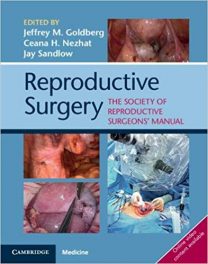 Author Katherine C. Kellogg
Author Katherine C. Kellogg
Publisher: University of Chicago Press – 230 pages
Book Review by Paiso Jamakar
The author Katherine C. Kellogg, an associate professor of organization studies at the MIT Sloan School of Management, observed for about two and a half years, staff surgeons and residents working in three hospitals, as part of the implementation of a regulation on work hour limits.
This intensive observation program followed a stern action by the American Council of Graduate Medical Education mandating a reduction in resident work hours from as many as 120 to eighty per week to protect patient safety, after growing concern in 2003 about errors and accidents by medical and surgical trainees.
What she found was shocking: “I was amazed to find that some of them resisted the work-hours reduction (with no reduction in pay) that had been designed for their own benefit. I couldn’t get my head around two things: first, how eighty hours a week could be considered a reduction; and second, how anyone in their right mind could resist such a reduction.”
She continues: “I was also struck by the exaggeratedly macho behavior of the residents who resisted change. I had friends in male-dominated professions, but the male swagger I observed in surgery was far beyond anything I had previously witnessed…as I watched those I came to describe as Iron Men… I noted that they were residents with the highest status in the surgical social world.” But she also discovered that there were residents who wanted and welcomed reforms.
This book is about learning the reasons for this resistance to change and bringing about change for the good of patients and doctors as well. The author writes that as she spent more time in the hospitals observing Iron Men at their work, she began to understand their devotion to their patients and strong commitment to their work.
Ms. Kellogg studied the power structures in the three hospitals she carried out her research studies in, and closely observed the interplay between the “defenders of the status quo” and the reformers who wanted to change work practices, especially in critical areas such as surgery.
This “tale” of the men and women who resisted change versus those who called for it, is a compelling and educational one, both for those who work at hospitals and those who are looking in from the outside.
This book is divided simply in two parts with four chapters each. Part I takes a look at the world of surgery prior to the work changes that were proposed, and Part II describes the conflicts that followed between those who resisted change and those who fought for it. Challenging Operations is a pioneering and laudable effort by the author Katherine C. Kellogg to discover what it really is like in real life at surgical departments in three hospitals, bringing about an understanding to the reader on what factors are at play when change is introduced, what fails, and what succeeds.
It provides deep insight on how to bring about reform in hospitals based on facts and real-life work situations witnessed at first hand over a number of years. As such, it helps us understand what is practicable and doable. We applaud and thank Ms. Kellogg for her research and for her hard work that has resulted in a book that prescribes realizable initiatives that can be taken to reform surgical practice in the United States.






